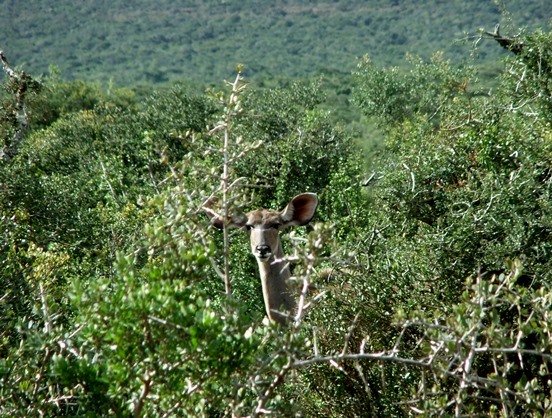Kudu cow

Author: Ivan Lätti
Photographer: Thabo Maphisa
The kudu cow gives an idea of the nature of the Albany thicket that covers a significant part of the Addo Elephant National Park. Although many tree species grow here, the thicket is not very tall, not regarded as forest.
Thicket suggests density more than height. The leaves and growing branches are not restricted to the upper canopy as in forests, but found at all levels. Thicket makes movement challenging for browsers while they feed, but brings foliage into more comfortable reach than forests.
Kudu don’t have to clear trails where there is an abundance of elephants performing such services for the benefit of all that stroll (and run). Browsing kudu may routinely walk the same paths regularly during their extended meal hours, often following roughly circular routes.
People also love prolonged lunches and dinners but in sedentary fashion. And society programs people to allocate much time to duties that make no sense to kudus.
This kudu will amble happily although always alert, plucking mouthfuls of leaves here and there as she goes. She usually moves in the company of a few other females, in season some calves are added, finding safety in numbers for keeping watch. A small group of males will be separate, but not far away. By tonight she won’t be hungry in veld looking like this.
Some plants react to browsing after a while, secreting a less tasty juice into their leaves being eaten. This is to let the kudus know when it is time to move on to something more palatable next door; the quota for this visit at this plant used up. In this way all plants contribute a share to browser meals while no plant gets denuded and all thrive in harmony.

